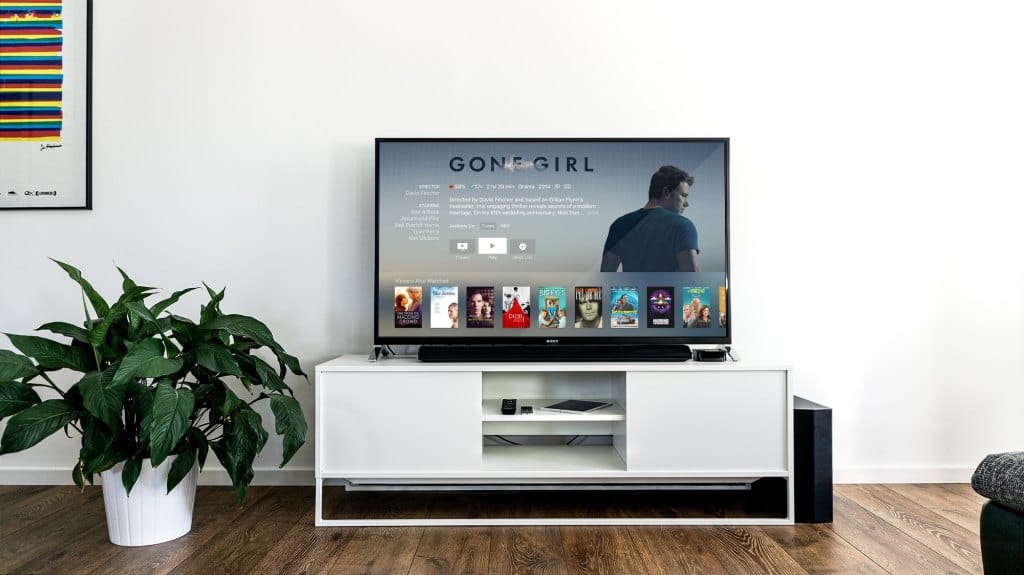Apple Stream(ing) of Consciousness

As time goes by and Apple rumors continue to mount of green-lighting television shows with big Hollywood names and players, thoughts about how they are going to deliver all this material are beginning to pop up. From John Gruber and Jason Snell, to rumors from tech sites like the Information, we are starting to make guesses on how Apple will position their content business.
As I’ve stated before, I think Apple getting into the entertainment business is a mistake and doesn’t make sense from a business or value perspective, And while I don’t typically see Apple as a ‘me too’ type of company chasing every passing fade, content seems like one area where they are jumping in because they don’t want to be left out, which does not play to Apple’s strengths. Those strengths lie in entering a business that has a high value market that needs fixing or has room for a better product— computers, music players, phones, watches. But the need for better content is about as low as it’s ever been. Hell, we are in the ‘Golden Era of Television’!
But with all the prognostication of what Apple streaming service *could* look like, I want to look at how they could possibly get value out of a streaming service, and how they could position it differently.
One of my biggest gripes with an Apple streaming service is that there is nothing wrong with the content business itself. There are hundreds of high quality series, both scripted and unscripted, that span a vast genre spectrum that find niche but passionate audiences. We are not lacking in compelling, visual storytelling, and it is not subsiding anytime soon. So what is Apple giving someone with a new video service that any of the other providers are not?
Nothing that Apple has made a deal for so far, is something that another service would have turned down. Neflix, Amazon, Hulu, HBO, etc. would all have mades the deals for the shows Apple is scheduled to bring to small screens, they just paid more money for those properties. And I’m fine with competition and creators and shows being paid more money, good for them. But Apple isn’t green lighting or saving shows that might never see the light of day, the way Netflix started doing years ago. They’re not giving a artistic outlet to creative professionals unavailable at other networks, like HBO has for over a decade. And they’re not offering specialized franchised stories, like Disney’s upcoming service. So with no discernible strategy that sets them apart from their competitors, what value exactly is Apple bringing to original programing landscape?
While Apple isn’t saving or altering the content creation business, there is an area that they are uniquely positioned to improve — the *delivery* of this programing. We are entering the era of streaming and video by apps, be it of legacy networks or new digital media companies that is shifting the paradigm of how we, the audience, views their shows and media. And while this allows video on demand, many of the generational baggage is still baked in, in addition to new problems, leading to still terrible experience. From sign-in codes, to bifurcated availability, to tyranny of choice, it is a practice of patience to watch what you want, when you want, where you want. But this is still early days, there is a blue ocean of possibility to create a better experience to deliver content, as only a few have taken up the mantel to try but no one has solved.
Now there have been rumors for years that Apple was attempting a grand vision for new model for viewing shows, but could not secure the content deals with networks or production companies to bring their idea to life. This goes as far back to when Steve Jobs was still alive, as it was referenced in his Walter Isaacson biography. Unable to have the content component of their master plan, is supposedly part of the reason, Apple decided to get into the becoming a commissioner of their own programs.
Another part, the very Appley part, is that they want to control the full stack vertically. And this, to me is the interesting part of Apple branded productions. Creating their own content allows them the ability and freedom to implant their delivery concept to the masses. Similarly to how the failure of iTunes on the phone with the Motorola Rokr lead them to own the stack and create the iPhone, this could be their end around to creating an unparalleled viewer experience.
Apple has been discounted before with their entry into a new product area — the iPod, the iPhone, the watch, all to later become best in class and enormously popular. So I am aware of the pitfalls of second guessing Apple, which is why I want to look at the possible strategy that could work for them.
With the many prognosticators are talking about how Apple will package or not package a video product, lets take a look at a few of the most likely possibilities. These top possibilities include offering the content of music, tv, and news/magazines (Apple bought magazine service *Texture* in March of 2018) free for iOS and AppleTV users, making it a value add of the hardware. They could separate the subscriptions for each service, selling them individually, for cut mores to pick and choose. They could also keep them separate, but offer a discount for budding them together in different fashions. Or they could offer one single price for all three, as a content subscription, additionally, they could offer a ‘super subscription’ for anything that could be a subscription, content, iCloud, AppleCare warranty, etc.
Apple has for sure explored these ideas and more in some way or another, looking at each from a financial, market, and user perspective. Looking at these options, the least appealing option pay for the services individually. There is not enough value in any one category for me to buy them separately. I’m already a happy Spotifty user, don’t need another video content service (already on Netflix, Hulu, and Amazon Prime- though more for Prime shipping than their video service), and not pining to use Texture right now.
Offering it for free to Apple hardware users would be great and make a lot of sense if the goal is to sell more hardware. That was my big question before when pondering why Apple would create it’s own video service, how does this help sell more hardware? Giving it for free to your customers would answer this question. But that leads to the question, would it be worth it for Apple financially to do that? Would that move the needle on hardware to make it a sound investment? A large majority of people by Apple hardware for the software, would content be powerful enough to have the same effect? My guess, while companies like AT&T are using this strategy (buying Time Warner), for Apple, I would venture a guess of ‘no’. And honestly, I don’t want to live in a world where the content I want is behind associated with what hardware you buy.
Now the idea of a single subscription (or discounted bundle subscription) for everything Apple offers as a service is the sweet spot. Whether it’s a ‘content’ subscription or a ’super’ subscription, this to me makes the most sense. This is where, and in my opinion, the only place Apple can find value in being in the content business. Individually, their services are weaker or similar to competing options, with no standing out feature. But together at a competitive price, Apple could create clear value in their service. This is where Apple must compete- price and quality- to get me an offering that I can’t get anywhere else. As I stated earlier, I am happy with Spotify and Netflix, but if Apple offers a full streaming music catalog, high quality video service, AND a news/magazine service for a price of $20 a month, that is hard to turn down. While I would keep Netflix, I would most definitely drop Spotify, and I am gaining something that no one else offers yet- articles for trusted sources.
But, price is only one half of the value position from Apple. Eventually, other companies would merge or combine services to compete with Apple on this front. I think the key to all of this talk around content, is this is the way they deliver it all to audiences. At this price, it would be great value, but the app (or full AppleTV OS) delivery of the content is what can really set it apart. I’m not going to go down the path of what that way could be, but this is where Apple can do their Apple thing and change the paradigm of finding, playing, and experiencing content. If they are able to do this in their controlled stack, with their content- video, music, and print- that is what would draw people to their platform and in turn buy their hardware. And with this paradigm shift, maybe they would be able to get what they’ve wanted from the beginning, other companies’ content. If they succeed at a shift in delivering content and people turn to it, they should open that new platform to other providers, further strengthening their position in this market, just like they were able to do with iTunes and the iPod.
I feel that Apple, for a long time, has had a vision of how to bring a video product to customers, but have been held back from executing their vision because of a lack of access to other people’s wares in the way the needed access to it. They had tried unsuccessfully to create their own bundle with the current networks, so this content creation play feels like an option they were backed into. And while I don’t think its the sole reason, it is definitely a factor.
This could be a long play around those road blocks they’ve hit so far, which is risky, but if the intention of realizing a lingering vision of finding and delivery content that we haven’t seen before, I would be okay with this bet. But Apple with have to play on a market tool they don’t usually flex and that is competition on price. They need to find value in a different way then creating the best. We already have the best ever in original shows, from a number of sources, so Apple must find value to get a foot in the door, then kick it open with their hardware and software integration, that no-one else can match.
But while Apple could extend a high value product at a really competitive price, numerous questions about the of their service remain, that will determine it’s viability. Will the service be open to every possible customer or will it be closed to those in the Apple ecosystem? Will there be an app on other vendor’s hardware like Apple music on Android? Are you going to have a large originals library like Netflix and Amazon or a more selective library like HBO? Are you going to have a catalog of movies and older TV show to fill out the library like every other service does? Does Apple feel the need to compete for awards? Does Tim Cook really want to be in those circles? Does that take away from Apple being a technology company? Apple is secretive company, can they hand the loose-lips of the entertainment industry, and the public drama that comes with producing television shows and movies. You don’t have the same reality distortion field that you have at Apple Park. And most of all does this materially help the company? Be it financially, brand equity, hardware sales?
Those last two questions are still the ones that I believe make this a high risk, low reward situation. There are too many variables that even if successful in the metric of subscriptions, how does this push the company forward? At the end of the day, you are still creating the same thing that has been created for over a century. While a successful show can have a powerful impact on the culture, art requires trying many many times in public, before a true gem is found. Which conflicts with their hardware philosophy, they are secretive, strategic, and calculating.
I just hope their starry-eyed entertainment ambitions don’t effect their true talent, creating beautiful, tangible devices that make the everyday more possible.





Comments ()